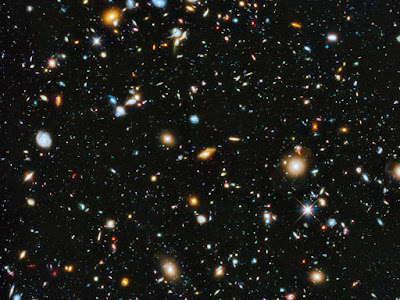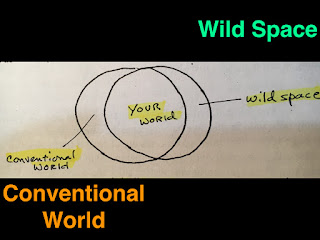Being a Boundary Dweller
Today, I am moved to talk about happiness as a continuation of last week’s boundary talk. Are we happy or are we not happy? If we are happy, why are we happy? If we are not, why not? What’s the definition of happiness, and what may be another layer of understanding happiness if we see it from the viewpoint of Christian spirituality?
“Anna: But explain Mary Lou Winters. Rich and popular then, even more so now. I sweat my way through law school — she marries the doctor and gets to lounge around Forest Heights for the rest of her life. Where’s the justice?
Wesley: She’s miserable?
Anna: Naw! She’s happy as a clam!
She was standing in the middle of the main hall and you could barely squeeze around her, the fur coat was that bulky. And a very handsome doctor was attached to the mink.”
(from Midnight Madness, performed at Dessert Theatre, Immanuel UC, last weekend)
To explore happiness better, we need to establish a context. Otherwise I might betray some of your expectations about what I may be going to say about centering happiness. For any matter, there’s never just one true story. There are many true stories. If we present a single story and believe it is the only one, we are in trouble.
I suggest that we begin with this theological statement:
Being a Christian is being a boundary dweller.
This statement uses the metaphor of “borderland” not as a wall like Berlin, Israel, … but as places to help us see differently.
There’s another concept that is very useful for our exploration of boundaries and happiness, and to understand the fact that we are, we all of us are, boundary dwellers. This useful concept is “wild space.”
Compare the diagram of Personal Boundary I introduced last Sunday and this one. These two exist not as opposite and incompatible but as something compatible and something we can live in both/and. These two different diagrams are ‘oblique’ to each other.
Wild Space is the part of each of us that doesn’t quite fit into our conventional language or the lifestyles and values which are more generously accepted or praised in our culture and society. (those life styles which are more widely considered to draw success and happiness.) What is your wild space within you? What elicits yearnings and desires from within you that do not correspond to the consumer and market-oriented, individualistic, greedy world? (A quote from Sally McFague: Life Abundant) Wild space is the source of our being that makes us encounter the world in a certain way and change you in a certain way.
I invite you to take time to ponder with me how we explore these spaces: Your Space, Their Space, Conventional World as the Space which influences the conventional wisdom about what it means to be happy and how you can be happy, and Wild Space: the authentic voices within and what you learn from relationship with others and with Mother Earth. We call the earth Mother because we believe our interaction with the environment to be a primary relationship that sustains life. How do you make your world? How do you live in those Spaces and on the boundaries and borderlands? As you explore these spaces, places, relationships, you are changing, discovering new and old ways of how you understand the world, what is good and what it is to be happy. You never stop changing. And you shouldn’t ever stop. Our life of border dwelling is never easy. At the corners of our life, we are stressed, we are burnt-out, angry, frustrated. Yet, our call is not to intentionally stop dwelling along the borders and boundaries, but to continue to learn about the vital work that can happen in these unsettling places.
In today’s Gospel, Jesus says, “I am the good shepherd. The good shepherd lays down his life for the sheep. I am the good shepherd. I know my own and my own know me… For this reason the Father loves me, because I lay down my life in order to take it up again.” In the same chapter of the Gospel of John, Jesus also says “I have come that they may have life, and have it abundantly.” Jesus calls us to be a borderland or boundary dweller, to lay down our life for others and for the community. It is not a calling to live a sacrificed, unjoyful life – giving up our freedom and our right to choose to live on our own and in our own way. It is a call for us to live abundantly – life abundant. But how does that happen? How does the shared life bring bounty?
We build justice, because one more person pushes the limits and borders and then takes the consequences of pushing the limits and borders in order to effect change. Perseverance combined with being in the hard space; if more people joined, we would see a more perfect world more quickly. Healing occurs between people because somebody cares enough to reach out their hand to another.
Care or pastoral care (I admire our pastoral care team, Joan and Muriel – very much) is a very courageous act because it requires you to take one more step beyond, that leads you out of your comfort zone or boundary. Each Christian is called to be a boundary dweller; being one who does not dwell inside the boundary walls, but on the uninhibited, bothersome, tricky borderlands of human encounter. ‘Care’ is a beautiful calling.
Caregiving is a hard job - for example, in Korea, we have the ethic of filial piety. This ethic is based on interdependence: Our mother has raised us up, feeding us, changing our clothes, sheltering us with love. So we pay our aging mother back with the same love and we care for her well-being because our own life was given from her from the beginning. But caring for somebody is hard. (More so, in Korean patriarchy, as the daughter-in-law is responsible for the primary care-giving of her mother-in-law. Think about it. We are interdependent, (tainted with patriarchy, but) so we do it, but care-giving is an immensely hard job. Love, joy, and commitment are there, yet more than just occasionally, worries, stress, frustration are there too.
Care or pastoral care (I admire our pastoral care team, Joan and Muriel – very much) is a very courageous act because it requires you to take one more step beyond, that leads you out of your comfort zone or boundary. Each Christian is called to be a boundary dweller; being one who does not dwell inside the boundary walls, but on the uninhibited, bothersome, tricky borderlands of human encounter. ‘Care’ is a beautiful calling.
Caregiving is a hard job - for example, in Korea, we have the ethic of filial piety. This ethic is based on interdependence: Our mother has raised us up, feeding us, changing our clothes, sheltering us with love. So we pay our aging mother back with the same love and we care for her well-being because our own life was given from her from the beginning. But caring for somebody is hard. (More so, in Korean patriarchy, as the daughter-in-law is responsible for the primary care-giving of her mother-in-law. Think about it. We are interdependent, (tainted with patriarchy, but) so we do it, but care-giving is an immensely hard job. Love, joy, and commitment are there, yet more than just occasionally, worries, stress, frustration are there too.
If the care for the vulnerable or the ailing, and the pursuit of social justice are border and boundary dwelling, being a boundary dweller is not well-attuned to the happiness formula our global capitalist and individualistic world promotes. Boundary dwelling as a Christian calling requires different and new ways of seeing what constitutes a good life, what promotes happiness. I imagine that no one among the first Jewish Christians ever said “Jesus lived a happy life.” Or “Jesus didn’t live a happy life.” And I bet none among them has ever thought that happiness is the crown we would inherit as Christians, but life abundance, living abundantly. Abundantly has nothing to do with being happy or not happy. Abundance is related to the “more”, the God: the ‘more’ than what appears to be happy.
The root of the word oppression is ‘being pressed’. It comes from press. “The press of the crowd; to press a pair of pants; press the button.” Presses are used to mold things or flatten them or reduce them, sometimes to reduce them by squeezing out the gases or liquids in them. Something pressed is something caught between or among barriers. To be oppressed we don’t have to be a racialized person, woman, gay or lesbian. If you feel you are pressed, caught between barriers in your life or in your present life stage, you are oppressed by what presses you. The expectation of happiness – what the happy and good life should look like; the well-trodden, crowded road towards success – can be oppression. I believe Jesus’ wisdom on border and boundary dwelling is this: “My yoke is easy and my burden is light.” He’s not removed the yoke or burden, but they are easy and light. Jesus, “The indigenous Galilean, dancing with Herodians and Romans, transgressive of borders”, moved between multiple places, agonizing and dancing with wild heart, to live the “more” and to live with the “more” – God, the Wisdom, in all things.
Therefore, I ask you, in the hard places of oppression – whatever presses you – dare to live the more, live abundantly. Happiness and freedom from care may be the conventional wisdom of our time. But do not let the expectation of what happiness is supposed to be – independence, or you name it in your context - make you unhappy. Our calling is to live with courage in the face of oppression and what presses us. Our world is the complex world of convention and wild spaces. Navigate through them. Do not lose hope. Do not lose joy. Seek happiness, yet also know our truest call is to seek what is more than happy: Jesus, the good shepherd who knows the way, and the way itself is life abundant.






Comments
Post a Comment